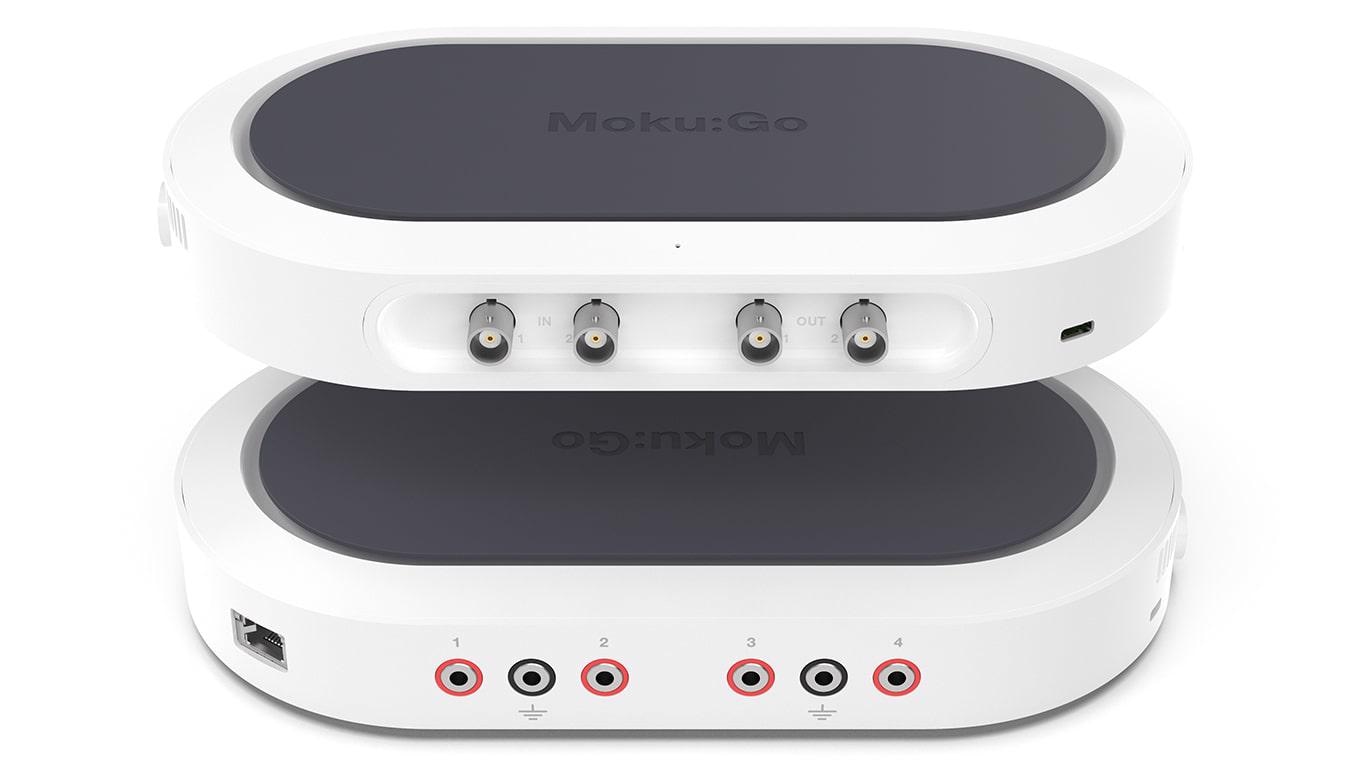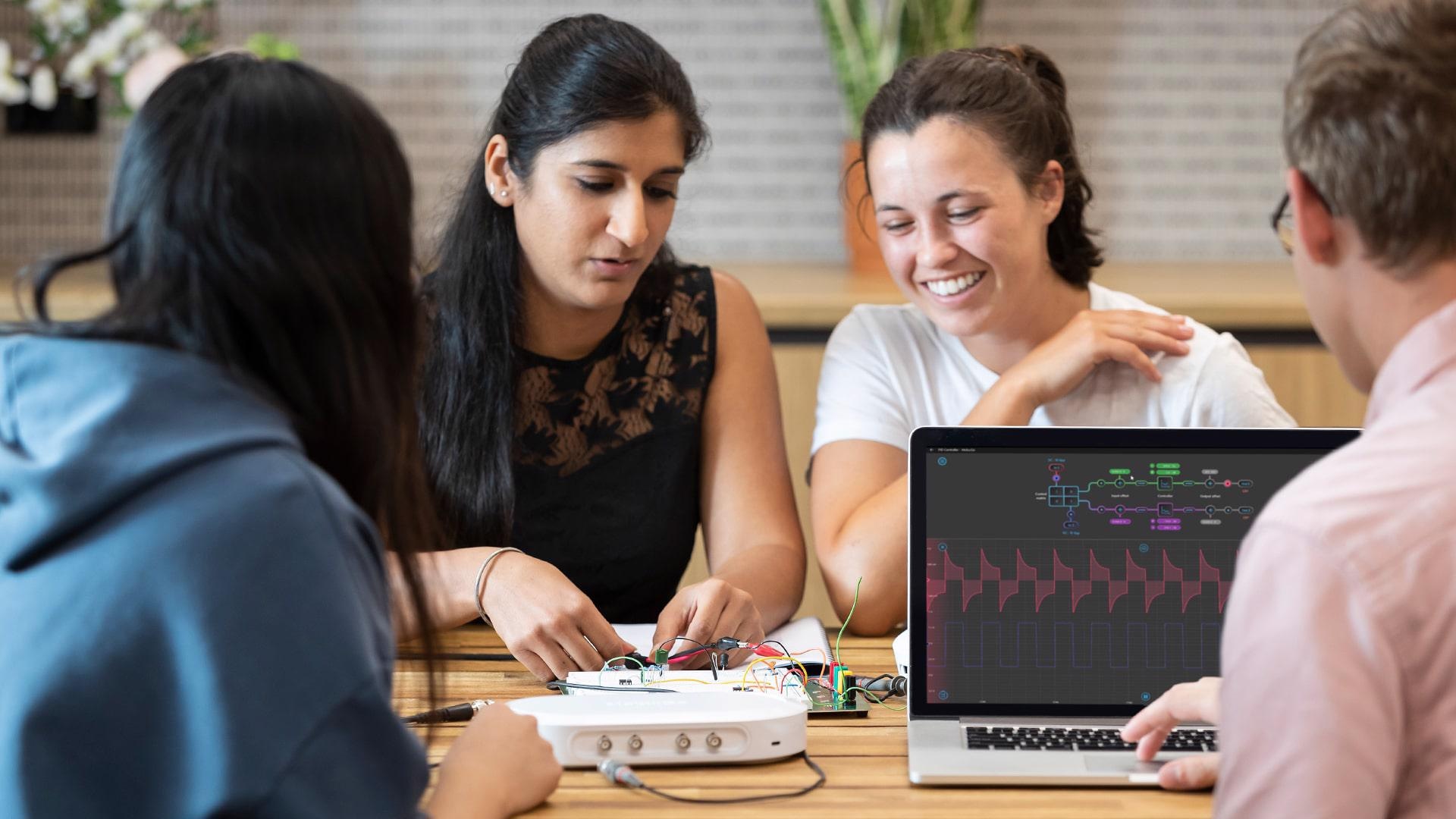Liquid Instruments, an innovator in precision software-defined instrumentation, has launched Moku:Go, a complete, portable platform designed to bring the engineering lab anywhere and usher in a new era of scientific and engineering education at universities around the world.
Within higher education, current in-person lab instrumentation is stationary, expensive, hardware-limited and fixed at the time of purchase. Existing portable solutions lack the intuitive software interfaces that current and future generations of students have come to expect. They also do not offer all of the necessary instruments and features to enable students to learn effectively outside of the lab. The increasing demand for remote learning solutions and a more hands-on experience both in and out of the classroom has fueled the market need for student-owned, flexible platforms that can support the next generation of engineers and scientists.

Image Credit: Liquid Instruments
The new software-enabled hardware platform, Moku:Go, is an engineering lab that can fit in a backpack. It was designed for maximum portability, flexibility and durability, to take not just electrical engineering students, but physics, bioengineering, chemical engineering and other majors through all four years of their education and even beyond. It starts with 8 proven, powerful instruments including an oscilloscope, PID controller, logic analyzer, arbitrary waveform generator, data logger, spectrum analyzer, and more. It also features full connectivity with a Wi-Fi hotspot and USB-C, robust hardware features and electrical protection to ensure that students can explore new projects without putting themselves or their equipment at risk. The unique integrated power supplies are user programmable with high voltage and high current options for any project.
“Our students were thrilled when we first added Moku:Lab to our classroom two years ago, and after seeing the new capabilities of Moku:Go, I’m even more excited. It is clear that it will help take students’ educational experience into the modern era,” said Colonel Brian J. Neff, Electrical & Computer Engineering Department Head at the United States Air Force Academy. “I look forward to seeing this become a standard part of our curriculum.”
Moku:Go’s software was designed to appeal to a generation that is accustomed to intuitive user interfaces and broad compatibility. Liquid Instruments is bringing the user experience out of the flip-phone era and has designed intuitive Windows and Mac interfaces that are inviting and powerful for students. It offers remote access capabilities and clearly diagrammed views of the signal processing chain, which makes it easy for students to learn difficult concepts whether they are in person or remote. The student-centric design ensures they are learning the core concepts, rather than just learning the equipment itself.

Image Credit: Liquid Instruments
Not only does Moku:Go help increase student engagement, but incorporation into the curriculum also reduces faculty and teaching assistant workloads. The platform supports Python and MATLAB APIs and has published examples of MATLAB live scripts for remote instruction, live student assistance, and plagiarism control.
Its robust feature set and sophisticated software can also unlock advanced capabilities for makers and even high school students looking to explore engineering. Whether they are learning the basics of resistors and op-amps or designing an advanced quadcopter with sensors and autonomous navigation, Moku:Go enables easier access to otherwise complex concepts and hands-on engineering projects anytime, anywhere at an affordable price.
Liquid Instruments is introducing Moku:Go for science and engineering students as part of its growing product portfolio of high-precision instrumentation solutions developed by its team of experimental physicists and engineers that know firsthand what is necessary to transform the way learning and research is performed at all levels. The existing product, Moku:Lab, has been utilized for years by top institutions worldwide, enabling breakthrough research in the areas of photonics, electronics, and materials science.
“Our first product, Moku:Lab, gave R&D scientists the power and flexibility they needed to do their job, all in a streamlined and cost-effective platform. Now with Moku:Go we will bring those same advantages to improve the overall quality of education and motivate students to study science and engineering,” said Professor Daniel Shaddock, CEO and co-founder of Liquid Instruments. “Students deserve lab equipment that is powerful and flexible, but also simple and fun to use. Improving access to critical educational tools will empower students from all walks of life to pursue a career in STEM.”
Moku:Go starts at $499 and can be customized to match school colors, with volume purchasing for educational institutions. For information on education discounts, accessories and full specifications, please visit the product page here.